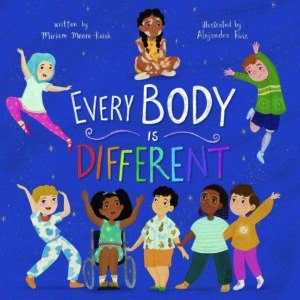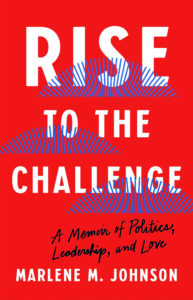
The Sociology of Cardi B: A Trap Feminist Approach
By Shantee Rosado ’09, Aaryn L. Green, Maretta Darnell McDonald, Veronica A. Newton, and Candice C. Robinson. (Routledge, 2024)
Dr. Shantee Rosado ’09 is an assistant professor of Afro-Latinx Studies in the Africana Studies and Latino and Caribbean Studies Departments at Rutgers University–New Brunswick. We asked her to tell us more about trap feminism and hip-hop artist Cardi B.
What is a trap feminist framework and why is it important?
Trap feminism, first coined by author Sesali Bowen, is a feminism that centers the most marginalized women in our society—the hood chicks, ghetto girls, and ratchet women. In our book, we use a trap feminist framework to center these women and to acknowledge and celebrate their knowledge. Our work, and this framework, show the importance of Black women defining themselves for themselves—most of the authors identify as trap feminists and see themselves reflected in the artistry of Cardi B and women like her. We use this framework to better understand hood chicks’ lived experiences in or adjacent to the trap, their engagement with hip-hop culture, their ability to hustle, and how they proudly own their sexuality.
How does your exploration of Cardi B expand conversations about sociology and feminism?
By examining sociological topics through a trap feminist lens, and through Cardi B’s public life and artistry, we ask academics to question their own biases regarding hood chicks. Sociology has historically excluded the voices of poor Black women, often regarding them as subjects to be studied but not as knowledge producers and theorists. Our work, in contrast, honors women like Cardi B to show the importance of knowledge produced in the hood and the trap. The book also pushes the boundaries of feminism, which tends to center white women, and Black feminism in particular, which can often center middle class, or “respectable,” Black women. We wanted to show readers that you can twerk and be civically engaged, that you can unabashedly talk about your sexuality while being a great mother, and that you deserve respect even if others don’t view you as respectable. The book is a recognition of poor Black women’s multifaceted brilliance and, we hope, a contribution toward our collective liberation.

Marlon James, professor emeritus of English, earned #42 on the New York Times’ list of “100 Best Books of the 21st Century” for his novel A Brief History of Seven Killings. The list was assembled with the votes of 503 novelists, nonfiction writers, poets, critics, and other book lovers. About the book, the Times wrote, “To skip even a paragraph, though, would be to forgo the vertiginous pleasures of James’s semi-historical novel, in which the attempted assassination of an unnamed reggae superstar who strongly resembles Bob Marley collides with C.I.A. conspiracy, international drug cartels and the vibrant, violent Technicolor of post-independence Jamaica.”

 Ron Barrett, professor of anthropology; Molly Zuckerman; Matthew Ryan Dudgeon; and George J. Armelagos. Emerging Infections: Three Epidemiological Transitions from Prehistory to the Present (Oxford University Press, 2024)
Ron Barrett, professor of anthropology; Molly Zuckerman; Matthew Ryan Dudgeon; and George J. Armelagos. Emerging Infections: Three Epidemiological Transitions from Prehistory to the Present (Oxford University Press, 2024)
 Miriam Moore-Keish ’19 with illustrations by Alejandra Ruiz. Every Body Is Different: Celebrate You! All About Our Differences (Capstone Editions, 2024)
Miriam Moore-Keish ’19 with illustrations by Alejandra Ruiz. Every Body Is Different: Celebrate You! All About Our Differences (Capstone Editions, 2024)
 Erika Reich Giles ’70. Becoming Hungarian: A Memoir (Montiron Press, 2024)
Erika Reich Giles ’70. Becoming Hungarian: A Memoir (Montiron Press, 2024)
 Marlene M. Johnson ’68. Rise to the Challenge: A Memoir of Politics, Leadership, and Love (University of Minnesota Press, 2024)
Marlene M. Johnson ’68. Rise to the Challenge: A Memoir of Politics, Leadership, and Love (University of Minnesota Press, 2024)
 Buff Whitman-Bradley ’66. A Friendly Little Tavern Somewhere Near the Pleiades (Finishing Line Press, 2024)
Buff Whitman-Bradley ’66. A Friendly Little Tavern Somewhere Near the Pleiades (Finishing Line Press, 2024)
Email book publication news to: mactoday@macalester.edu.
November 18 2024
Back to top





